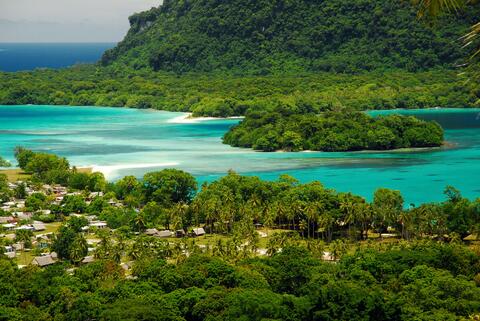Assisting members with their specific socio-economic assessments and monitoring needs to ensure long-lasting benefits from their resources
Good management of coastal fishery resources is actually more about managing people than resources, so it is key to understand people – those who catch, consume, and/or sell the resources - and the socio-economic structures that influence fisheries, such as the markets and institutions.
Our socio-economic team assists member countries and territories at different levels, using diverse tools and analyses that are tailored to each member’s specific request and situation, for instance:

- Cost-benefit analyses can help assessing whether projects (e.g., nearshore FADs) or policies (e.g., minimum sizes on sea cucumber harvesting) are worthwhile.
- Economic valuation of coastal fisheries and their contribution to GDP can be useful for fisheries agencies and civil society to advocate for additional management efforts and resources, or to inform management interventions.
- Bio-economic modelling can provide a detailed understanding of how fish stocks, fishing fleets, and profits may react to changes in the fisheries management regime.
- Value-chain assessments, by detailing points of sale, demand, and prices, and by mapping roles can guide interventions to enhance products values, improve partnerships or associations, and ensure a fair distribution of outcomes, including from a gender and social perspective.
- Feasibility assessment, design, or revision of economic incentives such as taxes and subsidies or financial mechanisms such as user fees and trust funds, can help ensure sustainable coastal fisheries management and aquaculture.
- Social and financial viability assessments of aquaculture and alternative livelihoods projects complement technical and environmental criteria to decide which projects are worth pursuing. These studies provide information on existing resources and required investments, social acceptability of new ventures, and potential management and governance options.
- Socio-economic monitoring can help track impacts of specific projects or legal tools, providing key information for adaptive management. An important example is the development of community-based fisheries management, where an understanding of community values, attitudes and well-being can guide communication strategies, future support needs and upscaling efforts.
- Institutional assessments, including networks analyses, can help understand governance regimes, horizontal links (within and across communities) and vertical links (with external stakeholders like government, aid agencies and the private sector). This knowledge helps inform ways forward to increase social and institutional sustainability of management regimes and specific projects.
Given the impacts of the COVID-19 pandemic, climate change, and other disaster risks, the socio-economic team can conduct assessments to evaluate the vulnerability of coastal fisheries and aquaculture, the impact of specific events, the levels of resilience, and provide recommendations for recovery and adaptation.
We apply our expertise alongside local knowledge to respond to new and ongoing challenges across the region. Gender and social inclusion principles are at the core of all these activities, as fair governance systems and projects are more likely to have long lasting benefits.
